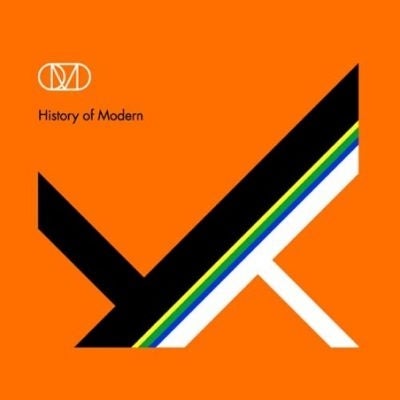Huge in the 1980s and chased out of fashion by guitar rock, British synthesiser pop icons OMD are set to release their first album in 15 years highlighting the movement's new-found credibility.
Orchestral Manoeuvres in the Dark were at the vanguard of the early eighties British synth-explosion along with fellow chart-toppers The Human League and Depeche Mode, selling 25 million singles since their formation in 1978.
As quickly as the scene erupted into life, it retreated back into the shadows, eclipsed by the return of guitars and the rise in popularity of harder electronic music at the turn of the 1990s.
In an interview with AFP, OMD frontman Andy McCluskey explained why two decades on the time was right to record the band's 11th studio album, "History of Modern," which is released in Britain this month.
"We stopped making records 15 years ago because we were patently banging our head against a brick wall at the height of Mancunian mono-brow music," the singer said, in a thinly-veiled slight against British guitar giants, Oasis.
"Every generation throws the previous generation out with the bathwater so in the 1990s the 1980s was considered passe.
"With the passage of time things get reassessed and currently electro is very in fashion and sounding like OMD is very cool.
"We thought if anyone's allowed to sound like OMD, hopefully it's myself and (bandmate) Paul Humphreys."
The resurgence of synthesisers, either in the form of traditional hardware or as a computer programme - known as a softsynth - has been bubbling under the surface for the last decade.
Enjoy unlimited access to 70 million ad-free songs and podcasts with Amazon Music
Sign up now for a 30-day free trial
Enjoy unlimited access to 70 million ad-free songs and podcasts with Amazon Music
Sign up now for a 30-day free trial
American rockers The Killers relied heavily on the instruments to add some spice to their indie-orthodoxy but it wasn't until the arrival of Lady Gaga and her synth-driven pop that the genre was fully welcomed back into the mainstream.
With many of today's chart-toppers reaping the rewards of the conceptual and technological leaps made by artists of the early 1980s, the legacy of this era's music on modern society is now the subject of high-brow discussion.
"I think it's been more influential than theatre, film and dance modernism," McCluskey said. "We are told we live in a post-modern era yet the charts are dominated by a sort of retro-futurism.
"People have reinvented modernism for themselves in 2010. It's something I'm interested in and is one of the reasons why the album is called 'History of Modern.'
"Music is not going to end war or feed flood victims, but music as part of a social mirror mechanism reflects and encourages changes."
Looming large over the whole genre is the brooding influence of enigmatic German quartet Kraftwerk.
The Duesseldorf band are universally cited by artists young and old, pop and techno, as representing the year zero of electronic music and OMD are in no doubt of the debt they owe.
"I always wanted to do something special, different and forward moving," McCluskey recalled.
"I found it on September 11, 1975, at the Liverpool Empire in seat Q36 when I had what turned out to be the first day of the rest of my life.
"I saw Kraftwerk play live and that was my 'Eureka' moment. I was hooked on so many levels. These guys came on with short hair, suits and ties playing electronic tea-trays. I thought, 'that's it, that's what I want to do.'"
This is no idle boast as making electronic music at that time required much more commitment and sacrifice than in today's environment of cheap, high quality music-making possibilities.
"We both come form working class families," McCluskey explained. "I had a bass guitar and we bought an electronic piano and an organ, all second hand.
"The one and only synthesiser we bought was from my mother's catalogue and cost seven pounds 76 pence a week for 36 weeks.
"It really didn't feel like it was going to be the future at the time."
Subscribe to Independent Premium to bookmark this article
Want to bookmark your favourite articles and stories to read or reference later? Start your Independent Premium subscription today.


Join our commenting forum
Join thought-provoking conversations, follow other Independent readers and see their replies